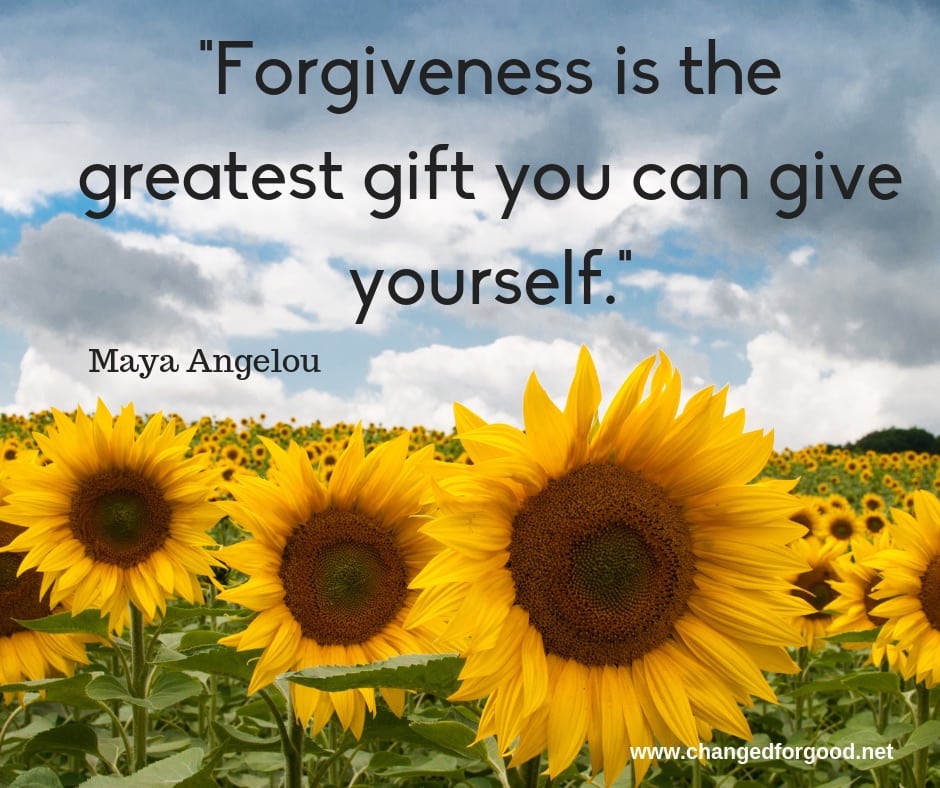
Do you ever let your mind travel into the past, allowing it to ruminate over the mistakes you’ve made on your life’s journey?
If you do, you are not alone. And, you are probably not very happy. Some of the unhappiest people I have ever met are those who criticise themselves constantly for their past mistakes, with painful memories running on a continuous loop inside their heads.
From such a sad place, it is all too easy to spiral into depression and anxiety, or even develop an addiction, in an attempt to ease the pain.
While it would be wonderful to make our way through a perfect life with no errors, failures or humiliations, we need to remember that perfection doesn’t exist. The mistakes we make in life are all part of the human experience, and problems only arise when we are unable to let go of them.
When you think about your past, what words tend to come up for you?
“It’s my fault.”
“What an idiot!”
“How could I have been so stupid?”
“I’ve made so many mistakes.”
Do any of these sound familiar? It’s so tempting to become fixated and focused on replaying the same old memories, even if the person we had once hurt has moved on, or those who hurt us have never given their behaviour a second thought.
Eventually, these painful memories become a permanent part of your story, with every negative experience acting as ‘proof’ of your bad judgement, or your terrible personality. Your imagination runs wild, playing you worst-case scenario movies about your future, as you frequently criticise yourself in the present.
The rule of the mind is that it responds to two things: the mental pictures we form, and the words we say to ourselves. So you will only ever make yourself feel unhappy and uncomfortable by revisiting past mistakes and making them part of your present and future.
Happily, this rule of the mind can be used in a positive way, simply by changing what we imagine to be true about ourselves. To do this, we must begin to think better thoughts, and make happier pictures in our heads.
Here are my four tips to help you begin the journey to self-forgiveness.
1. Accept that making mistakes is a vital part of the human experience.
As human beings, we are all flawed. Try not to punish yourself for something you did wrong when you were five years old…or even last week.
2. Healing begins when you re-frame an event. Gain an understanding about how and why something happened, by asking yourself a simple question: “Would I do that again, today?” If the answer is “no”, you have learned an important lesson. Forgive yourself and move on. Hypnosis can also be of great help in learning to re-frame a personal event.
3. Accept that you did the best you could at the time. All of our decisions are based on what we know at that point, and sometimes we will do and say things that we later regret. The good news is that you can allow yourself to turn the page, and move on.
4. If you can say sorry, do. If you can’t say it face to face, saying sorry in your head can still be effective.
If all else fails, keep in mind the serenity prayer: “God, grant me the serenity to accept the things I cannot change, the courage to change the things I can, and the wisdom to know the difference.”
Whatever else you do, I would like you to promise not to carry the pain of past mistakes forever. Don’t turn it into a powerful life sentence, in which you play the exhausting roles of judge, prisoner and executioner.
You are worthy of forgiveness, so it’s time to take off that ‘guilty’ label and make happier pictures in your head. It’s time to forgive yourself, and others, for being flawed human beings.
Begin your personal forgiveness journey today, and you will naturally carve out the path to a happier future.
